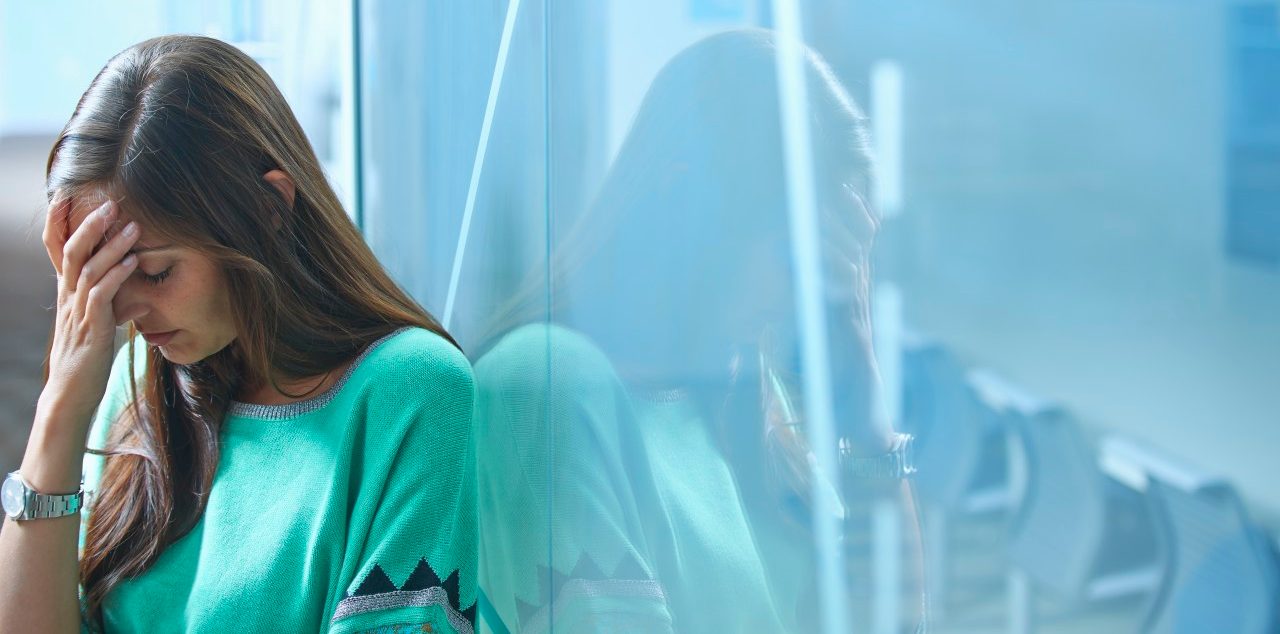Major Life Stress Is Harder on Women

In every group of adults ages 18 to 65, women are more likely than men to report experiencing serious psychological distress in the past 30 days.
Everyone experiences stress in their daily life. But when you look at how much stress impacts individuals, there’s a gap between the genders.
That’s the finding from a poll conducted by The Physiological Society, an independent organization made up of over 3,500 scientists from more than 60 countries. The poll surveyed more than 2,000 participants and found that major life stress is harder on women than it is on men. Women reported higher levels of stress in response to 10 life changes and events — ranging from the death of a loved one to losing a smartphone to a promotion at work — than did men.
YOU MIGHT ALSO LIKE: How Stress Affects Your Brain
Stress and women’s health
The poll, which was designed to evaluate stress in modern Britain, asked participants to rate how stressful they found specific events from one to 10, with 10 being the highest level of stress. The researchers then looked for how stress related to a variety of factors, including age, geographic region, and education levels.
The survey was not intended to be a measure of stress and women’s health. But for every life event or difficult situation the poll asked about, researchers found that women reported experiencing more stress than men did.
The average difference in reported stress between men and women was 0.56 out of 10. The largest difference was for the threat of terrorism, which women rated 1.25 points more stressful than men did. The smallest difference between genders was for the arrival of a first child, which the report notes is “a life-changing event for either sex.” Even then, though, women reported experiencing more stress than male respondents.
In a press release, Lucy Donaldson, the Chair of The Physiological Society's Policy Committee, said that the findings “could have a real impact on women's health.”
The poll is not the only research to find that life stress is harder on women. In 2014, a report conducted by the Centers for Disease Control and Prevention (CDC)concluded that adults in the United States were experiencing severe stress at higher levels than any point in the past seven years.
But, the report continued, women were far more likely to report these high levels of stress than men. In every group of adults ages 18 to 65, women were more likely than men to report experiencing serious psychological distress in the past 30 days, with the biggest gap occurring between the ages of 18 and 44.
Signs of stress in women
While stress is often thought of as mental, it can manifest in many ways.
On its website, the CDC shares several common signs of stress. These include emotional symptoms, such as shock, fear, anxiety, tension, or irritability. There are also many physical signs of stress in women. These can include headaches, sleep problems, crying, muscle pain, or loss of appetite. Stress can also cause changes in behavior, such as trouble making decisions, loss of interest in normal activities, and using drugs or alcohol.
These physical and behavioral symptoms are often misdiagnosed as independent health problems, rather than being recognized as a response to stressful life events. As a result, understanding the different ways stress manifests can have a significant impact on women’s health.
"While many people are aware of the effect of stress on mental wellbeing, it is also important to consider the impact on the body's systems,” noted Donaldson. “Your brain, nervous, and hormonal systems react to stress, and it affects your heart, immune system, and gastrointestinal system. When stress is prolonged, these effects on the whole body can result in illnesses such as ulcers or increased risk of heart attack."
Resources for coping with stress
If you are experiencing stressful life events, the CDC’s website suggests healthy coping mechanisms for managing stress. There are also resources for dealing with stress due to trauma, difficulty at work, or mental illness.
If stress is affecting your health and wellbeing, make time to speak with your doctor. Healthcare providers can help you develop a plan to cope with stress and reduce its impact on your everyday life.
Updated:
February 27, 2020
Reviewed By:
Janet O’Dell, RN